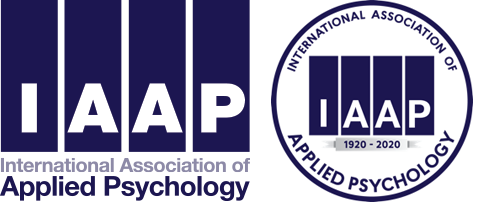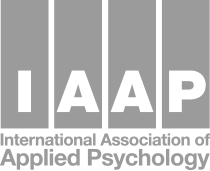Survey of the NGO/UN Working Relationships from the NGO Perspective
Executive Summary
Background:
Based on their own early experiences as NGO representatives to the UN from the International Association for Applied Psychology (IAAP), Drs. Walter Reichman and Mary O’Neill Berry decided to conduct a survey in May 2006 among their fellow representatives. The project was an opportunity both to exemplify the usefulness of organizational psychology to a setting like the UN, as well as to provide some guidance and direction to improve the effectiveness of the working relationship between the UN and the NGO representatives. The survey was sponsored by the NGO/DPI Executive Committee.
The survey questionnaire was developed by Sirota with input from the NGO/DPI Executive Committee, DPI, and NGO representatives; it was administered mostly online, with just over 2,100 emailed, as well as just over 400 paper mailings; 248 were completed, a response rate of 10%.
The results of this survey are reliable plus to minus 6 percentage points.
Demographics:
Respondents are predominantly older (more than 50% are 55 or more years of age); 38% have been NGO representatives for at least 6 years, 45% for 2-5 years; 72% are from international organisations; 53% have their HQ in the Americas, 34% in Europe; 77% have a representative in the NYC area; and 83% work primarily in English.
The sample is thus dominated by English-speaking international NGOs with representatives in the NYC area.
General Satisfaction Ratings:
Overall satisfaction with the UN experience is favourable (71%), though not highly favourable; satisfaction with DPI is also favourable (70%.)
Favourable Results:
- Respondents are highly favourable regarding most of the DPI services/activities provided for NGOs, especially the DPI/NGO Annual Conference (86%), the DPI/NGO Weekly Briefings (85%), and the DPI/NGO Orientation Programme (82%).
- One of the major themes in the open-ended comments on DPI services/activities is that DPI provides good services.
- Respondents are also highly favourable about their role as an NGO representative at the UN, seeing it equally divided between helping disseminate information about the UN and furthering the cause(s) for which their NGO stands (93% each), with slightly fewer (80%) saying the role is to have input into and influence policy decisions at the UN through ECOSOC.
- Respondents indicate a close relationship between their NGO and the UN: 86% say that being able to work effectively with the UN is important to carrying out the mission of their NGO, while 79% say that their NGO has direct input into the positions and actions they take at the UN.
- Favourable ratings (71%) are given to networking and partnership opportunities at the UN.
Moderately Favourable Ratings:
- More moderate ratings are given to the frequency with which the various DPI services/activities are used or attended: these range from 62% who say they attend the Annual Conference “often” or “very often” to only 24% who say they attend the Communications Workshop, and only 25% who say they attend the Orientation Programme.
- This represents a significant opportunity for DPI to identify reasons why attendance is not higher, and to devise ways to encourage greater use of the services which are available.
- In addition, only about half of respondents (52%) are favourable regarding the ease of finding out who does what at the UN, as well as the extent to which they can be an active participant in DPI/NGO events (56%).
- Again, clear opportunities on which DPI can focus in response to these results.
- Respondents are also quite moderate regarding the NGO/DPI Executive Committee, though this appears to be due to a lack of familiarity with it: less than half (47%) rate their knowledge about the work of the Committee as “good” or “very good”, while just about half give favourable ratings to the services provided by the Committee (51%) and to the Committee Website (50%).
- The open-ended comments on the NGO/DPI Executive Committee mention that the respondents don’t know much about their work and that it needs to be publicised more; another major theme is that they do good work.
Success Factors and Obstacles to NGO Effectiveness at the UN:
- From the open-ended comments on success factors and obstacles to working effectively with the UN, several themes emerge:
- Success Factors: Being able to network/collaborate with other NGOs; having access to information about how the UN system works/what the UN is doing; having access to the right people/staff/decision makers at the UN/knowing who to go to; and attending meetings/conferences/events.
- Obstacles: Lack of time; lack of funding; the perceived attitude of the UN toward NGOs (resistance to NGO input/told that NGOs are valued, but not treated accordingly); the size/complexity/bureaucratic nature of the UN; lack of information about who to go to/how things work/what’s going on; distance from New York; and lack of co-ordination between NGOs at the UN/lack of information about what other NGOs are doing.
In Sum:
- A positive picture overall, with some specific opportunities for….
- Improving access to and use of the existing DPI services;
- Better informing representatives about the role and services of the NGO/DPI Executive Committee;
- And for DPI and the NGO/DPI Committee to take a more proactive, facilitative, enabling role vis-à-vis the NGO representatives so as to enhance their effectiveness at the UN to the mutual benefit of the Organisation and the NGOs themselves.
Follow-up:
The results of the survey were presented to the NGO representatives by Drs. Reichman and O’NeillBerry as part of the DPI/NGO Communications Workshop on 9 November 2006. On the afternoon of that day, four Breakout Sessions, moderated by members of the NGO/DPI Executive Committee, discussed potential action steps to address several issues emerging from the survey results: 1. Practical techniques for getting new NGO representatives up to speed at the UN and for being an effective NGO representative at the UN; 2. How to coordinate efforts with other NGOs at the UN to achieve results; 3. What would help you and NGO representatives to better understand the role and responsibility of the NGO/DPI Executive Committee; and 4. How to communicate with your NGO membership.

